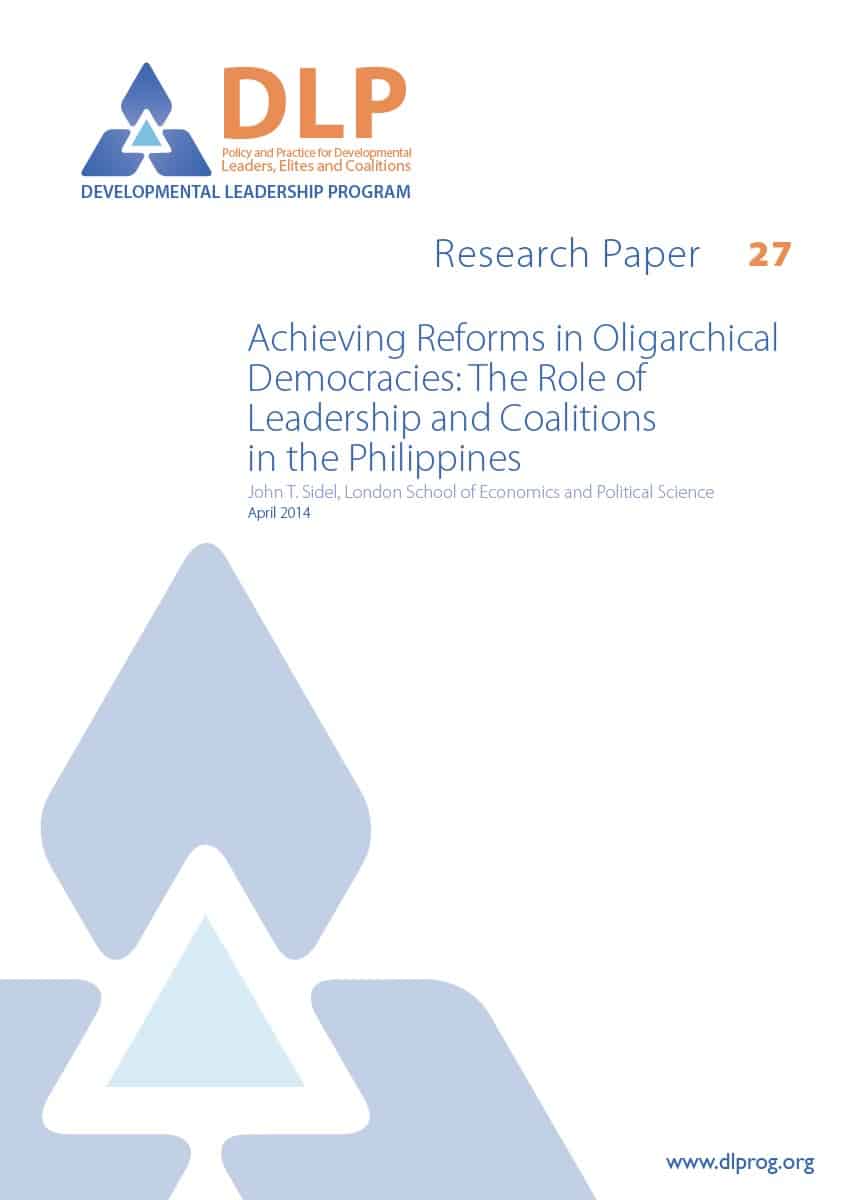This paper examines the role of developmental leadership in two major reforms introduced in the Philippines in 2012: the passage into law in December of excise tax reform which significantly raised taxes on cigarettes and alcohol – generally referred to as the Sin Tax Reform – and, in July, the re-registration of voters in the Autonomous Region of Muslim Mindanao (ARMM).
These reforms have a) strengthened government finances and healthcare; and b) improved the quality of elections and promoted good governance and conflict resolution in the southern Philippines.
Key points:
These reforms were not achieved exclusively through the executive leadership of Philippine President Benigno Aquino III, this paper argues. A broader form of developmental leadership was critical to their passage into legislation and their subsequent implementation, made up of reform coalitions that incorporated elements of government, the legislature, and civil society.
While these coalitions were diverse and flexible in their form and composition, their core strength came from established advocacy groups and experienced activists. These groups and activists used highly labour-intensive, specialized and complex forms of mobilization.
The success of these reform coalitions, it is argued, has implications for economic and governance reform in the developing world, particularly in systems characterised by oligarchical democracy, where competition for elected office is closely linked to the entrenched interests of business and industry.









